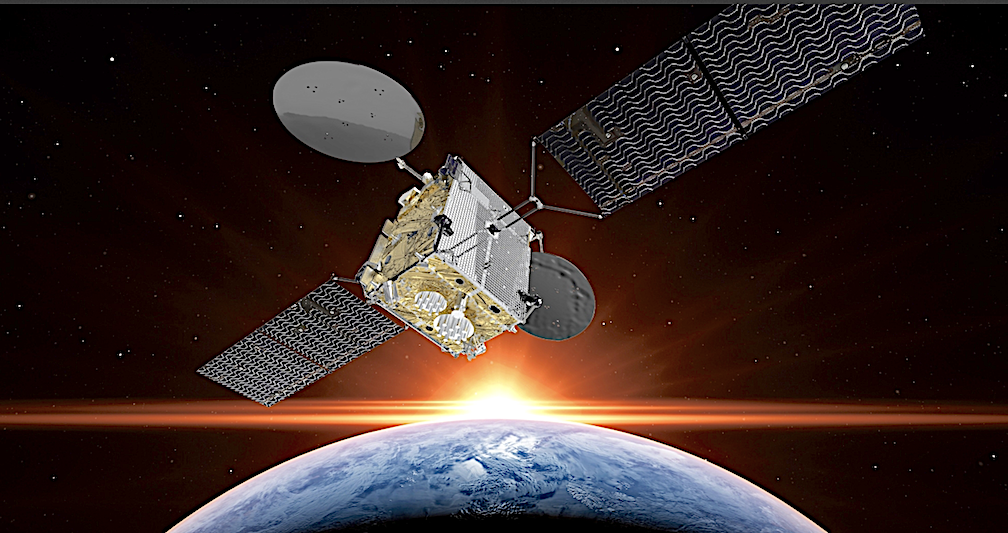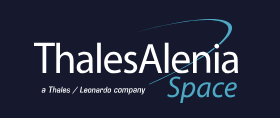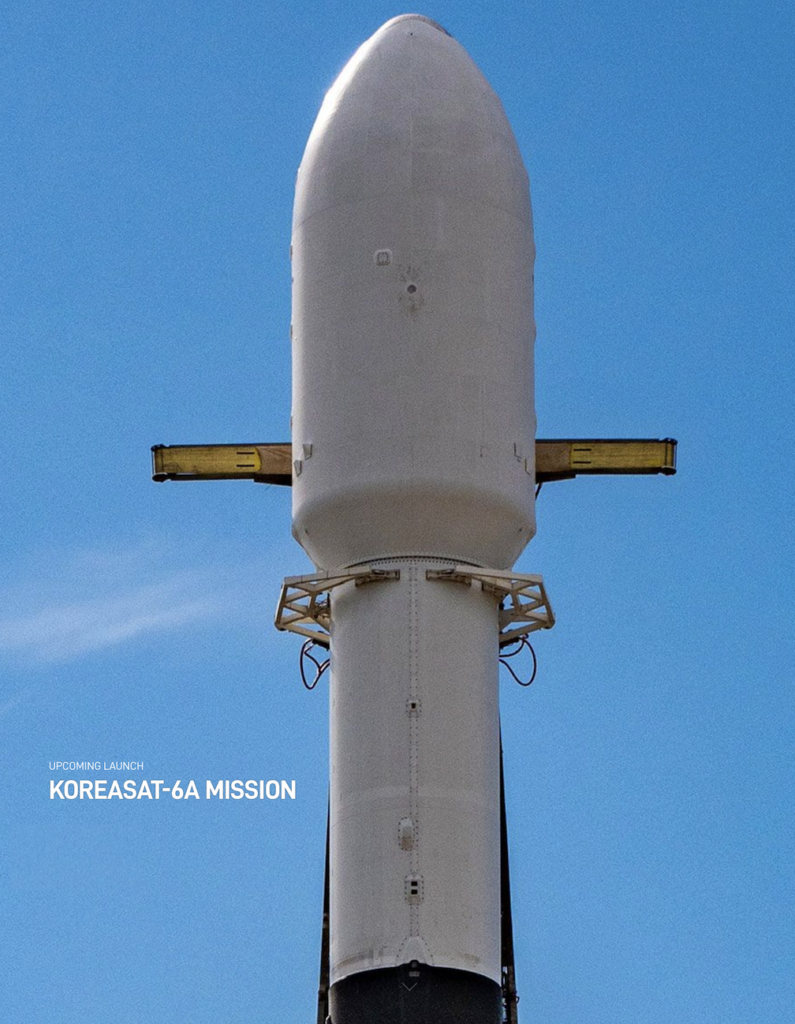

SpaceX is targeting Monday, November 11 for launch of the Koreasat-6A mission to geosynchronous transfer orbit from Launch Complex 39A (LC-39A) at Kennedy Space Center in Florida. The four-hour window opens at 12:07 p.m. ET. If needed, a backup launch opportunity is available on Tuesday, November 12 with a four-hour window opening at 12:06 p.m. ET.
The Koreasat 6A spacecraft, built by Thales Alenia Space, will have 20 transponders for fixed satellite services and six for TV broadcasting to replace the Koreasat 6 launched in 2010.
Koreasat 6A will be based on the manufacturer’s Spacebus 4000B2 platform and is expected to weigh about 3.5 metric tons at launch. It will be designed to operate for at least 15 years.
A live webcast of this mission will begin about 15 minutes prior to liftoff, which you can watch on X @SpaceX.

Following the communications satellite contract signed in September 2022, KT SAT Corporation Ltd. (KT SAT), the leading satellite service provider in South Korea, and Thales Alenia Space, the joint company between Thales (67%) and Leonardo (33%), are announcing today that KOREASAT 6A will also embark a satellite-based augmentation system (SBAS) payload to improve the continuity and availability of the Korea Augmentation Satellite System (KASS).
Developed since 2016 by Thales Alenia Space jointly with the Aerospace Research Institute (KARI), KASS is similar to the European Geostationary Navigation Overlay Service (EGNOS). It improves the positioning and navigation performance provided by global navigation satellite systems (GNSS) for a number of different sectors, especially aviation. It has been developed to meet international standards by International Civil Aviation Organization (ICAO), improving the accuracy and reliability of global positioning system (GPS) signals and better ensure flight safety and efficiency, while also reducing the environmental impact of air travel.
KASS is expected to improve the GPS position error to 1.0-1.6 meter from the current 15-33 meter level in real time to ensure positioning reliability throughout the country. Also KASS has been considered as a future technology as it could be applied to various fields, mainly public safety, transportation, defense and science.
This will be the 23rd flight for the Falcon 9 first stage booster supporting this mission, which previously launched CRS-22, Crew-3, Turksat 5B, Crew-4, CRS-25, Eutelsat HOTBIRD 13G, O3B mPOWER, PSN SATRIA, Telkomsat Marah Putih 2, Galileo L13, and 12 Starlink missions. After stage separation, the first stage will land on Landing Zone 1 (LZ-1) at Cape Canaveral Space Force Station.
According to weather officials, there’s a 70% chance of favorable weather conditions at the time of the launch. The forecast calls for a temperature of 78°F, light rain, 81% cloud cover, a wind speed of 7mph and 0.28in of rain.
